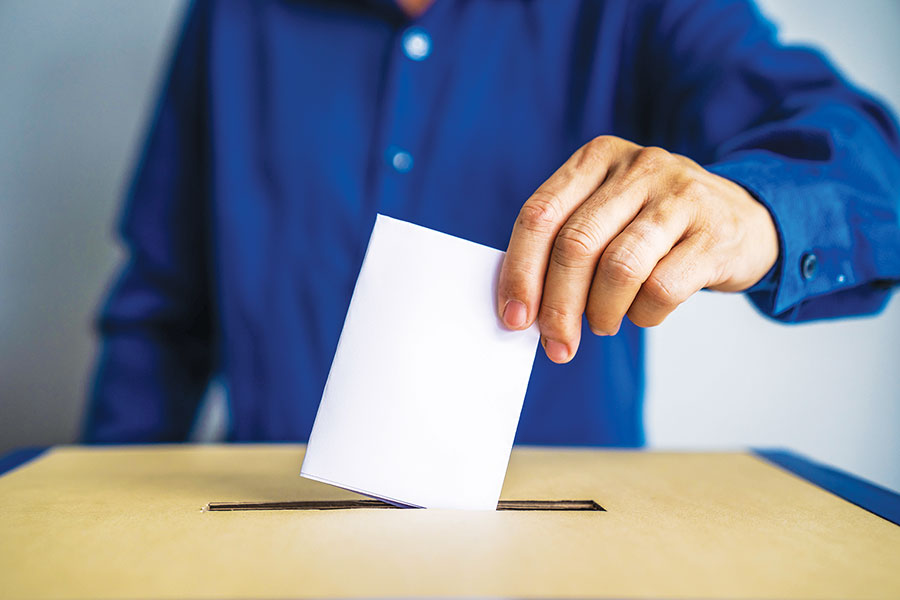WELLINGTON COUNTY – Most ballots and voter information will arrive by mail this week for the municipal elections on Oct. 24.
Citizens will be voting by mail or online in most Wellington County municipalities. The only exception is Puslinch Township, where an in-person voting option is available, in addition to mail.
Voters who have not received an information card/ballot should confirm they are on the official voters list for their municipality by contacting the clerk’s office in their municipality or online at www.voterlookup.ca.
Anyone who finds they are not on the voters list but should be, should contact their municipal clerk.
Who can vote?
A person is entitled to vote in the election for municipal council if they meet all the following requirements:
– Canadian citizen;
– aged 18 or older; and
– qualified to vote in the municipality.
There are three ways that citizens qualify to vote in a municipality:
– as a resident elector if they live in the municipality. You may own, rent, live in shared accommodation where you do not pay rent, or live in the municipality but do not have a fixed address. Being a resident elector is the most common type of eligibility.
– as a non-resident elector if you own or rent property in a municipality, but it’s not the one where you live. You can be a resident elector in only one municipality. However, you can be a non-resident elector in any other municipality (or municipalities) where you own or rent property; and
– as the spouse of a non-resident elector if your spouse owns or rents property in the municipality or municipalities other than the one where you live.
Note: Neither you nor your spouse qualify as a non-resident elector if you do not personally own or rent the property in the municipality. For example, if the property is owned by your business or your cottage is owned by a trust, you would not qualify as a non-resident elector.
If you are not certain whether you qualify as a non-resident elector you should check with the municipal clerk.
If you qualify to vote in more than one municipality, you can vote in all of those municipal elections. For example, if you qualify as a resident elector in one municipality, and a non-resident elector in three other municipalities, you can vote in all four of those municipal elections. The exception to this rule is if two or more of the municipalities are lower-tier municipalities in the same region and voters are electing candidates to the regional council. In that case, you can vote for a regional council office only once.
However, if your municipality has wards you must vote in the ward where you live. Owners or tenants of a property in another ward are not permitted to vote in that ward instead.
If you are a non-resident elector and you own or rent properties in more than one ward in the municipality, you must choose one ward to vote in. Make sure that you are on the voters’ list for that qualifying address.
There is a special rule for students who may be living away from home while they attend school. If you are a student and consider your “home” to be the place where you live when you are not attending school (that is, you plan on returning there), then you are eligible to vote in both your “home” municipality and in the municipality where you live while attending school.
Public health and safety
Municipal clerks are responsible for setting up and running the voting places used in a municipal election. The clerk must follow any provincial or local public health measures that are in effect. They may also put in place additional procedures that they consider necessary for conducting the election.
Anyone with questions about public health and safety at the polling place, should contact their municipal clerk.
Removing your name from the voters list
The voters’ list is a public document.
Anyone who does not want their name to appear on the voters list can apply to the clerk to have it removed, states a 2022 Voters Guide published by the provincial government.
The guide notes voters whose names have been removed from the list will not be able to vote.
Citizens also apply to the clerk to remove the name of someone who is deceased.
You cannot ask for someone else’s name to be removed from the list for any other reason.




